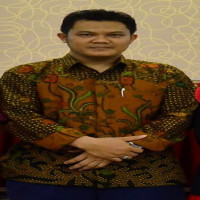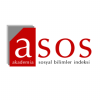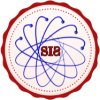Aim & Scope
The Journal of Interdisciplinary Educational Research aspires to publish high-quality scientific studies in the field of Educational Sciences, providing a platform for scholars to share their findings and contribute to the advancement of knowledge. Grounded in the understanding that science represents a holistic force integrating diverse fields, the journal embraces a multidisciplinary academic perspective. By addressing education-related topics across various disciplines, the journal seeks to establish itself as a reputable academic platform dedicated to fostering scholarly excellence and interdisciplinary collaboration.
The Interdisciplinary Journal of Educational Research encompasses studies conducted in the field of Educational Sciences, focusing on the following areas:
- Guidance and Psychological Counseling
- Educational Management
- Measurement and Evaluation in Education
- Curriculum and Instruction
- Philosophy of Education
- Social and Historical Foundations
- Lifelong Learning and Adult Education
- Instructional Technologies
Author Guidelines
Click here for journal's article template.
Ethical Principles and Publication Policy
Ethical Principles and Publication Policy
Publication Ethics
The ethical principles and open access policy of the Interdisciplinary Journal of Educational Research adhere to the guidelines and policies established by the Committee on Publication Ethics (COPE), including the Code of Conduct and Best Practice Guidelines for Journal Editors and the COPE Best Practice Guidelines for Journal Editors. All aspects of the publication process are required to comply with these ethical principles.
In cases where manipulation of data or the use of fabricated data in articles is detected, the institution affiliated with the author(s) will be officially notified, and the article will be rejected for publication. The journal reserves the right to request the output files of analytical results from the authors based on feedback from the editor and/or reviewers.
The ethical responsibilities of the publisher, journal editor, reviewers, and authors are outlined below.
Publisher's Ethical Responsibilities
The Interdisciplinary Education and Research Association, the publisher of the Interdisciplinary Journal of Educational Research, is a non-profit, public-benefit civil society organization.
The journal's Editorial Board is appointed by the Board of Directors of the Interdisciplinary Education and Research Association. Editorial Board members serve a five-year term, with appointments reflecting the various branches of educational sciences. An editor is designated as the head of the Editorial Board, supported by one or more assistant editors and field editors as needed. The publisher also appoints an editorial board secretariat, which assumes an active role in managing the publication process.
Depending on the topic of the submitted article, the editor may assign articles to faculty members outside the Editorial Board to serve as field editors when necessary.
Ethical Responsibilities of the Editorial Board
The Editorial Board is responsible for every article published in the Journal of Interdisciplinary Educational Research. This responsibility entails independent decision-making, with careful consideration of the public interest. All decisions made by the editors are independent of the publisher and other individuals or organizations.
The Editorial Board ensures the establishment and implementation of journal policies, including those related to publication, blind peer review, the evaluation process, and ethical standards.
The Editorial Board upholds the protection of authors' copyrights.
The Editorial Board takes preventative measures to address issues related to intellectual property rights, unethical scientific behavior, plagiarism, and citation manipulation during the article publication process.
The Editorial Board maintains electronic records of each article and all correspondence related to the journal.
Ethical Responsibilities of the Editor, Assistant Editors, and Field Editors
Editors are responsible for meeting the information needs of referees and authors.
When making decisions regarding the publication of articles, editors ensure that the articles contribute meaningfully to the scientific literature and benefit readers, researchers, and practitioners.
In making both positive and negative decisions about articles, editors consider the originality of the work, its contribution to the field, the validity and reliability of the research methodology, the clarity of the narrative, and its alignment with the journal's aims and scope.
Editors proceed to the preliminary evaluation stage of submitted articles if there are no ethical or scientific issues.
Editors apply blind peer review and evaluation process policies to articles that pass the preliminary evaluation, ensuring that each article is reviewed within the established time frame.
Editors assign articles to referees based on their areas of expertise and support impartial and independent evaluations.
Editors assess potential conflicts of interest between editors, referees, and authors to ensure impartial evaluation of the articles.
Editors strive to ensure that the referee pool is diverse and regularly updated.
Editors prevent unscientific evaluations and ensure that reviews adhere to academic standards.
Editors ensure the correction of any errors, inconsistencies, or misdirections in the articles.
Editors are required to provide clear and informative feedback to both authors and referees.
Editors maintain communication with all parties involved in the publication process and organize regular meetings.
Editors ensure the protection of personal data in the articles under review, safeguarding the privacy of authors, referees, and readers.
Editors are committed to ensuring that human and animal rights are respected in the articles.
Editors ensure that the explicit consent of participants is documented, and reject articles that lack ethical committee approval for participants or permission for experimental research.
Editors take necessary precautions to ensure that published articles do not violate the intellectual property rights of other works, conducting originality and similarity checks.
Editors defend the intellectual property rights of published articles and protect the rights of both the journal and the author(s) in the event of any violations.
New editors should refrain from altering decisions made by previous editors regarding studies, unless there is a significant issue.
Editors take into account consistent critiques of published articles and provide the authors of those articles with the opportunity to respond.
Editors also consider studies that present negative results.
Editors review complaints and suggestions submitted to the journal and provide necessary clarifications.
Ethical Responsibilities of Referees
The principle of double-blind peer review (authors are unaware of the referees’ identities, and referees are unaware of the authors’ identities) is applied in the article evaluation process of the Interdisciplinary Educational Research Journal. Referees are prohibited from communicating directly with authors. All communication, including evaluation forms and notes on the text as well as correction requests, is sent to the author(s) by the editors through the journal management system. Referees have the following ethical responsibilities:
Referees should accept only those articles for review that fall within their field of expertise.
Referees must conduct their evaluations impartially and confidentially. According to this principle, they must destroy the articles they have reviewed after the evaluation process. Only the final published versions of the articles may be used post-publication.
Referees must provide a justification for refusing to review an article.
Unless there is a significant reason (such as health issues, conflict of interest, etc.), referees should not withdraw from the evaluation process once they have agreed to review an article.
Referees are expected to accept articles that do not present conflicts of interest. If a referee identifies a conflict of interest, they must decline to review the article and notify the editors.
Referees should evaluate articles in a constructive manner, adhering to academic etiquette, and avoid personal comments that include insults or hostility.
If referees make offensive or unscientific comments, the editor or editorial board may contact them to reconsider and revise their feedback.
Referees must complete their evaluations within the specified time frame and in accordance with the ethical responsibilities outlined above.
Ethical Responsibilities of Authors
The ethical responsibilities of authors submitting articles to the Journal of Interdisciplinary Educational Research are as follows:
Authors must not submit articles that have been published or are under consideration for publication elsewhere.
Authors should not submit more than one article to the journal at a time.
Authors must submit original work to the journal.
If authors draw upon other studies, they must accurately and fully reference and cite them.
The names of individuals who did not contribute to the article should not be listed as authors.
Authors should not suggest changes to the author order, nor should they add or remove authors after the article has been submitted for publication.
Authors must disclose any conflicts of interest or relationships that may influence the evaluation process of their submitted article. They must explain the nature of the conflict to the editors.
Authors may be requested to submit the raw data of their studies during the peer review process. In such cases, they are expected to share the raw data with the editorial board.
Authors must retain the data associated with a published article for a minimum of five years.
If authors detect an error in their published article, they must inform the editor and editorial board and cooperate to correct or retract the article.
Authors must document that they have obtained the necessary permissions for any data used in their articles, including research-related approvals and participant consent.
If errors are found in their work during the early publication phase, authors must inform the journal editor and work with the editor to correct the errors.
For research involving human or animal subjects, authors must include in the methodology section that ethics committee approval was obtained, and upload the approval document along with the article submission.
In case reports, information regarding consent form acquisition must be included in the article.
Authors must provide evidence in the article that they have adhered to ethical principles during data collection (e.g., obtaining permission for the use of documents such as scales, surveys, or photographs).
Authors must state that they have complied with research and publication ethics, as well as copyright regulations for intellectual and artistic works.
If the research involves human or animal subjects, authors must confirm that the study was conducted in accordance with international declarations, guidelines, or other relevant ethical frameworks.
Ethics committee approval is not required for review articles or secondary data (e.g., PISA exams) provided by the authors.
In articles that do not require ethics committee approval, the methodology section must explicitly state that ethics committee approval was not necessary.
Plagiarism and Unethical Behaviors
All articles submitted to the Journal of Interdisciplinary Educational Research are scanned using the software programs iThenticate or Turnitin before publication. Articles with a similarity rate of 20% or below in total, and no more than 3% similarity from a single source, are accepted. Articles exceeding these thresholds will be returned to the authors for revision and reorganization. If plagiarism or other unethical behavior is detected, the article will be rejected.
Some examples of unethical behaviors are listed below:
Including individuals who did not contribute to the study as authors.
Publishing the same article in multiple venues.
The article being a result of "salami slicing" (publishing multiple articles from a single study).
Failing to indicate if the article is based on the author's master’s/doctoral thesis.
Failing to disclose if the article is derived from a report or project.
Altering the data used in the article after the data collection date.
Modifying the research results.
Failing to declare conflicts of interest regarding submitted articles.
Disclosing the identities of referees in the double-blind peer review process.
Reporting Unethical Practices
In the event of unethical behavior involving the editors, referees, authors, or articles in the evaluation process, early view, or published works, such behavior must be reported via email to the editor. The email address can be found in the Communication section of the DergiPark web pages.
Evaluation Process
The article evaluation process is described in detail under the "Evaluation Process" tab.
The correction process required by the authors depends on the nature of the suggested revisions. Based on the extent of the revisions, the authors are given a correction period of at least one month and a maximum of six months.
Licenses and Copyright Policy
Authors with journal publications retain restriction copyright licensed under the Creative Commons Attribution-NonCommercial 4.0 International license (CC BY-NC 4.0) and grant the Publisher a non-exclusive commercial right to publish it. The CC BY-NC 4.0 license permits unrestricted, non-commercial, distribution and reproduction in any medium and format, with proper referral to the original work.
Authors who submit articles to our journal read the following copyright policies and sign the Copyright agreement form while uploading their work to the online system of our journal.
Archiving Policy
The Journal of Interdisciplinary Educational Research, uses the LOCKSS system offered by DergiPark. For more information about the archiving system the LOCKSS website can be visited.
Price Policy
Fee Policy
Articles submitted to the Journal of Interdisciplinary Educational Research (JIER) undergo a preliminary evaluation by our publication committee. Articles that meet the content and formatting requirements after this initial review are then sent for evaluation to at least two referees.
In order for articles to be evaluated after meeting the required content and formatting standards during the preliminary review, a fee of 1,000 TL (for the year 2024) must be paid per article. This fee is required regardless of the acceptance or rejection outcome.
The Journal of Interdisciplinary Educational Research (JIER) compensates referees for their evaluation services, and additional costs such as digital printing, graphic design, and indexing are covered by this fee. Consequently, the evaluation process will not proceed for articles that have not paid the required fee.
For articles that are ultimately accepted for publication after completing the peer review process, the fees paid to referees, editors, and for editorial expenses (500 TL) will be deducted, and the remaining amount (500 TL) will be refunded to the authors.
Submission Fee: 1,000.00 TL
IBAN: TR460020500009943080800001
KAİNAT YAYINCILIK ÖZEL EĞİTİM ÖĞRETİM HİZMETLERİ LTD. ŞTİ.
Editoryal İşlem Ücreti: 500.00 TRY
Yayın Ücreti: 500.00 TRY
Indexes
Journal Boards
Editor in Chief

Editors
Duties and responsibilities in the journal:
Managing and following article editorial processes
Preparing articles for the issue and publishing the issue

Duties and responsibilities in the journal:
Journal index management and communication officer
Editorial Board

Asyraf Isyraqi Bin Jamil is currently a senior lecturer/assistant professor of Islamic Education Programme, Academy of Islamic Studies, University of Malaya, Malaysia. He teaches and publishes in the fields of history, philosophy and administration of Islamic education. He is proposing a research project on multi-religious education in Malaysia to study the needs and ways of implementation of multi-religious teaching and learning within Malaysian education system.

Prof. Dr. Afiful Ikhwan is a distinguished academic and expert in the field of Islamic educational management, with a particular focus on the development and governance of madrasah institutions. As a professor in this discipline, he has dedicated his career to higher education, research, and policy development in Islamic education, rooted in values, culture, and local contexts.
His primary research interests include strategic management of madrasahs, transformational leadership in Islamic education, quality-oriented institutional governance, and the development of management models based on spiritual values and indigenous wisdom. Through an interdisciplinary approach, Prof. Afiful Ikhwan advocates for the integration of modern management principles with Islamic values to build excellent, adaptive, and globally competitive madrasahs.
An active scholar, he has authored numerous scientific publications in nationally and internationally accredited journals, textbooks, and training modules aimed at enhancing the managerial capacity of educators and administrators in Islamic educational settings. He is also frequently invited as a speaker, training facilitator, and policy consultant at national and international forums focused on strengthening Islamic education systems.
With a strong commitment to the advancement of knowledge and sustainable educational practices, Prof. Afiful Ikhwan continues to contribute to shaping a generation of Islamic education scholars and practitioners who are ethical, competent, and forward-thinking.
https://afifulikhwan.com
https://letiges.com
https://letiges.or.id
I am a passionate marketing scholar committed to advancing both theoretical and practical aspects of the field. I currently serve as the course leader for the BSc(Hons) Digital and Social Media Marketing course, and I hold the position of senior lecturer and researcher in social media and digital marketing at University of Staffordshire in the United Kingdom. My scholarly interests lie within the broad realm of social media and digital marketing. I am particularly intrigued by the development of digital and social media marketing capabilities that can enhance organisational performance. My research portfolio comprises over twenty research papers published in top-tier marketing/business journals such as the Journal of Strategic Marketing, Computers and Education and the Journal of Marketing Theory & Practice among others.


Duties and responsibilities in the journal:
Journal index management and communication officer
Duties and responsibilities in the journal:
Managing and following article editorial processes
Preparing articles for the issue and publishing the issue

Associate Professor in Education Psychology
Advisory Board


Language Editors
The Aim of The Journal
The Journal of Interdisciplinary Educational Researches (JIER) published by the Interdisciplinary Educational and Research Association (JIER)A) is an internationally eminent journal.
JIER, a nonprofit, nonprofit NGO, is concerned with improving the education system within the context of its corporate objectives and social responsibility policies. JIER, has the potential to solve educational problems and has a strong gratification for the contributions of qualified scientific researchers.
JIER has the purpose of serving the construction of an education system that can win the knowledge and skills that each individual should have firstly in our country and then in the world. In addition, JIER serves to disseminate the academic work that contributes to the professional development of teachers and academicians, offering concrete solutions to the problems of all levels of education, from preschool education to higher education.
JIER has the priority to contribute to more qualified school practices. Creating and managing content within this context will help to advance towards the goal of being a "focus magazine" and "magazine school", and will also form the basis for a holistic view of educational issues. It also acts as an intermediary in the production of common mind for sustainable development and education











